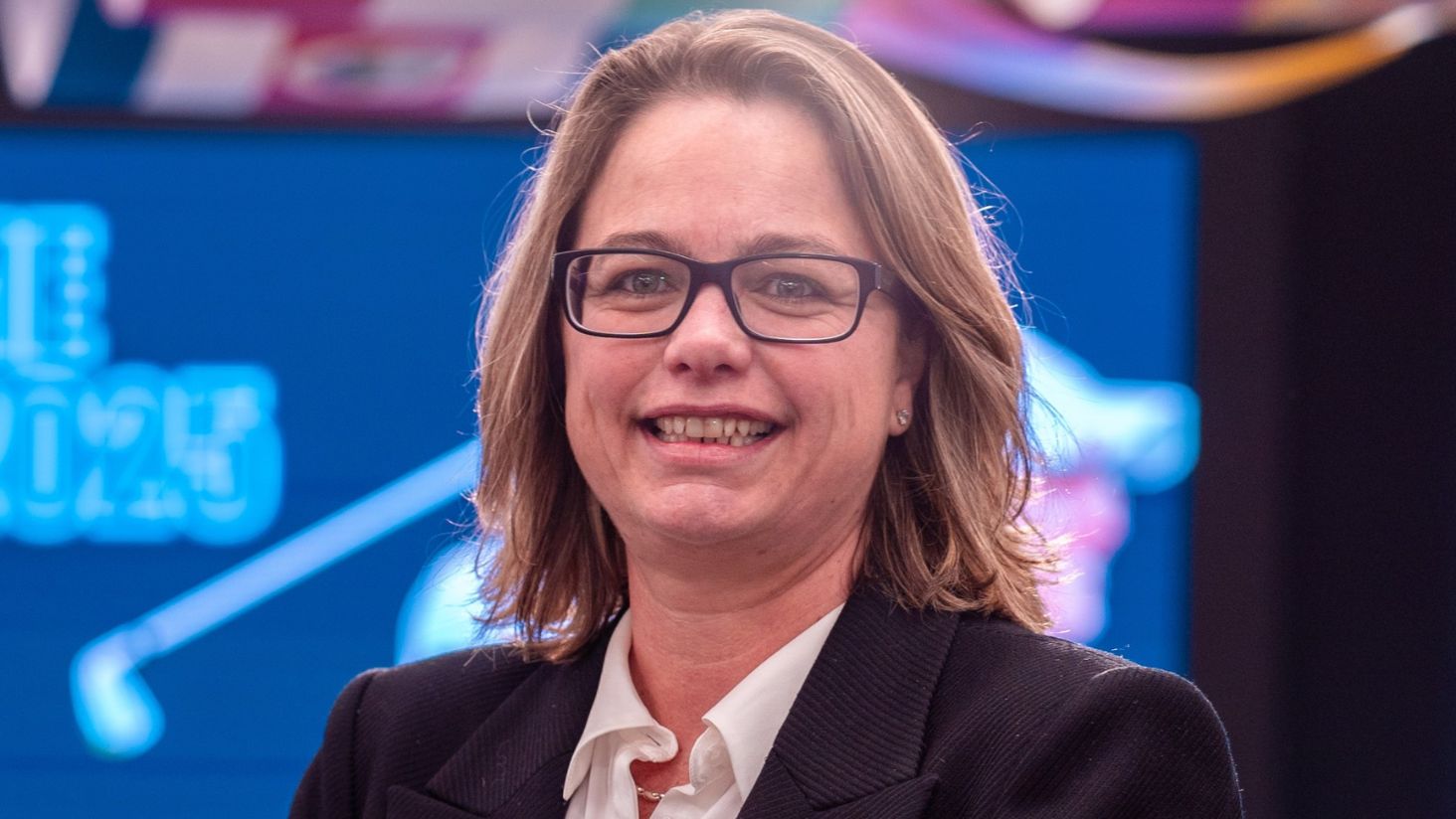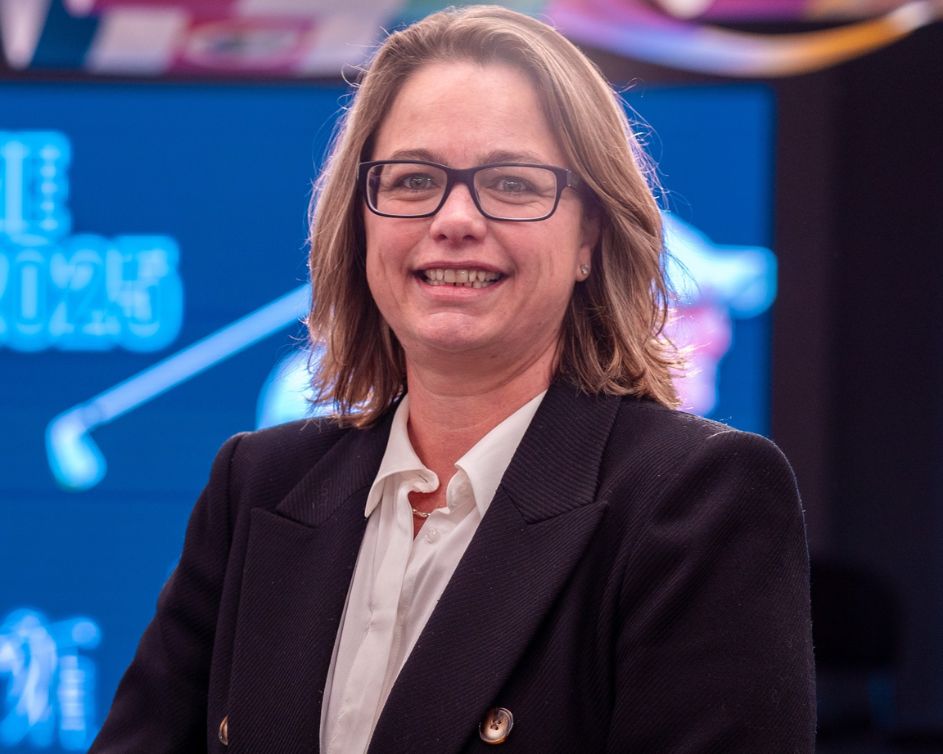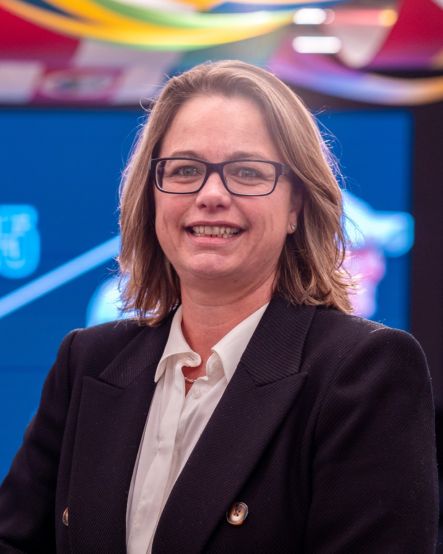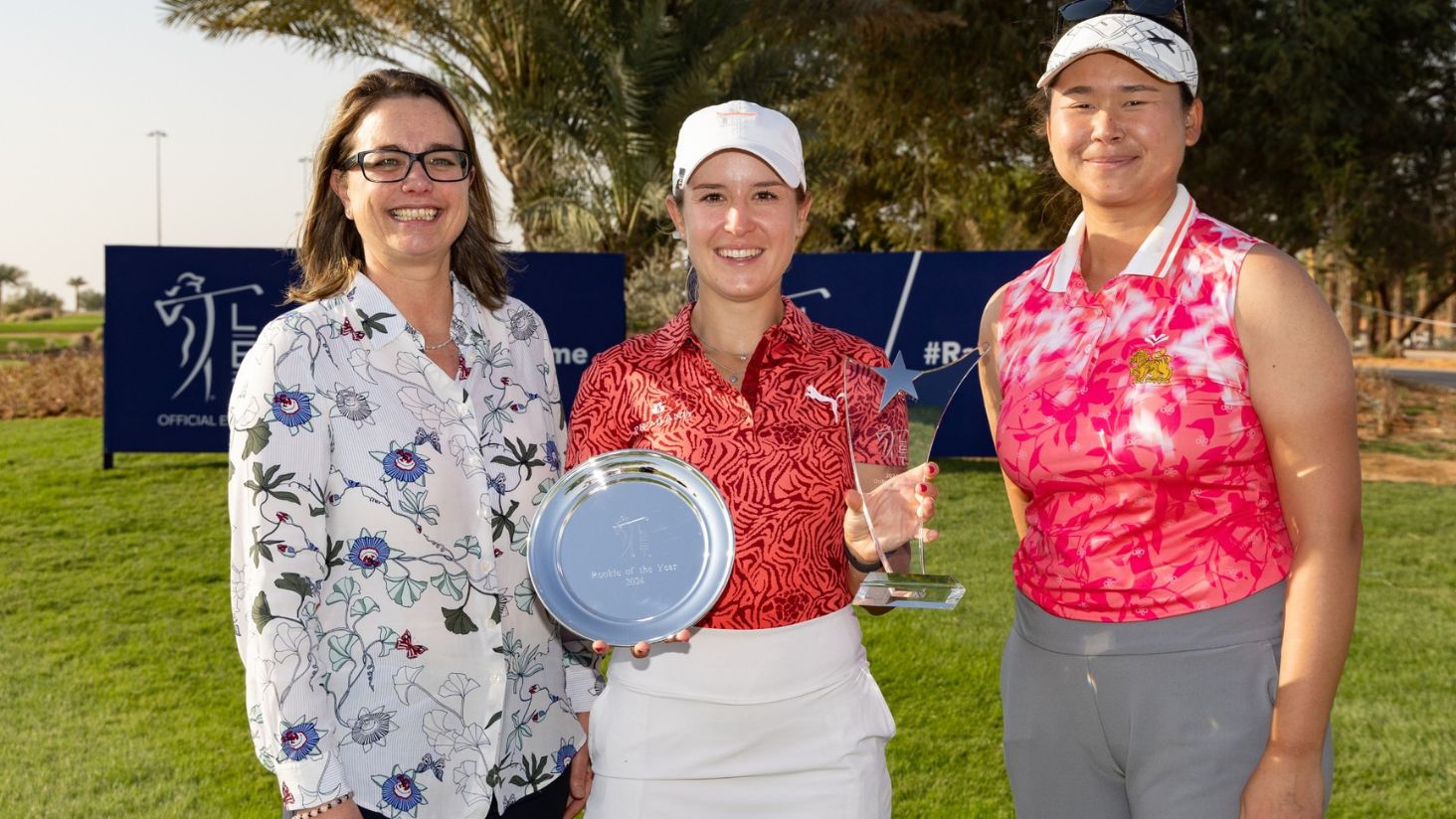


What will become of the Ladies European Tour, Alexandra Armas?
Her second term as CEO of the Ladies European Tour is coming to an end. In this interview, Alexandra Armas talks about the development of the LET, her opportunities and the future.
Alexandra Armas, the CEO of the Ladies European Tour (LET), recently announced that she will be stepping down from her position after six years with the organization.
After receiving a golf scholarship to Wake Forest University and earning a master's degree in business administration, she played professionally on the LET for four years from 2001 to 2005. She then served as the organization's executive director for nearly eight years before starting her own sports marketing consultancy. In late 2019, Armas returned to take on the role of CEO, reporting to the newly formed LPGA-LET Joint Venture Board of Directors. She quickly rebuilt the LET's game plan and brand, driving the business forward to create more opportunities for its members. She met with Juan Luis Guillén during the Amundi Evian Championship to discuss the announcement.
Ladies European Tour CEO Alexandra Armas in an interview
Question: Looking back on your first day as CEO of the Ladies European Tour (LET), what did you expect and how did it compare to what has happened over the last six years?
Alexandra Armas: COVID came along.
I had already been CEO of LET from 2005 to 2012; then I left and started consulting. I was very proud and satisfied with my tenure at the time. The LET approached the LPGA as they were looking to do a joint venture to rebuild the European schedule as it was in trouble.
I initially just advised and helped with the process. I was a big advocate of closer cooperation between the LPGA and the LET. As you know, golf is very fragmented and there are many organizations and entities, so I think uniting women's golf makes us stronger and more effective. I thought it was a very exciting opportunity to be involved in. And then, in that process, they asked if I would help implement this vision of the Association of Women's Golf to create a game plan for the players again.
Yes, that excited me, so I decided to come back. I hoped that the LET would be revitalized with the support of the LPGA and that we could rebuild our core game plan in Europe. We have built great momentum. The first schedule we published for 2020 looked very good. It was a significant improvement on the previous year. And then COVID came along.
But luckily we were in a joint venture with the LPGA. All the golf governing bodies came together to tackle the challenge together. Since then, the priority has always been and will always be playing opportunities for female athletes.
Question: Nowadays, everyone talks about the potential of women's golf as a vision and a great investment. It seems like you recognized this potential seven years ago.
Alexandra Armas: I have always been involved in the LET and women's golf. Before that, I was a professional golfer myself. I've always been fascinated by the talent and commitment of the female athletes, the accessibility and the value proposition of women's golf compared to other sports.
It's great to see that the rest of the world is now catching up and realizing that women's sports are also great to follow and watch.

Alexandra Armas on sponsors and marketing
Question: So when you sell women's golf to a partner or sponsor, what is your argument?
Alexandra Armas: Well, I mean, it's a great environment, but I think it's a great sport and I'm just a big fan of the athletes.
I was here [at the Amundi Evian Championship] for a few days and I spoke to sponsors, some of whom were at the Pro-Am yesterday - they all loved it. They all really enjoyed it. They especially love how interactive it is when they play with the pros.
The players are also really engaged. It's probably different to a lot of sports. You don't always get so close and so directly into the action. Then you add the value proposition of our TV coverage, TV reach, digital content and all the other elements, and those numbers are doing really well.
Question: You mentioned the fragmentation of golf in general. Is women's golf in a better position to avoid this level of fragmentation?
Alexandra Armas: I think what we find very important as the LET and what the LPGA finds very important is that we need to create harmonious environments in which we can thrive. We need to be open to working with like-minded organizations, sponsors, partners and stakeholders.
There are so many elements that go into hosting a tournament and running a Tour, but we need to leverage and maximize all of those opportunities. I think relationships play such a big part in this and it's about working together and pooling resources that benefit the game rather than fragmenting it and everyone working in their own silo.
Q: What is the best part of the relationship with the LPGA? What do you think the future relationship between the LET and LPGA should look like?
Alexandra Armas: I think the best part is that we both have a consistency in what we do. We are all trying to provide the best platform for our athletes to perform at their best. That's our biggest asset.
That's very much our parallel way of sharing experiences, working together and being able to improve each other's chances. They are bigger; they have more resources, so it helps us to be able to access that as well. It's the synergy between the organizations that allows us to accomplish more than we would separately.
"We have the opportunity to do things differently"
Question: Women's golf is probably one of the most international sports. How do you deal with this and how do you use it?
Alexandra Armas: That we are global?
Question: Yes.
Alexandra Armas: I mean, you know, that's something that's very close to my heart personally. Every young, talented female golfer should be able to find a way to the top of women's golf.
For us, that means playing in all these different countries, working with all the different Tours and bringing this pool of female athletes together to give female athletes the opportunity to find their way to the top of the sport. I think our responsibility is to bring golf to the whole world. If you look at the leaderboards in any of our tournaments or the LPGA tournaments, you see so many different nationalities. We play in so many countries, but we also have such a broad representation of players from different nationalities. That enriches us and also increases our fan base.
Question: Does this global reach give you an advantage in terms of partners and sponsors?
Alexandra Armas: Yes, of course, but there are many partners that are specific to one market. For example, in Asia we have female athletes from those countries, and it definitely helps to customize the offer for your partners when you have a variety of options.
Question: Looking at your last day, what would be your message to the next CEO of the LET?
Alexandra Armas: I guess there's a lot, but one thing that stands out for me is to be bold and think outside the box.
I think, as you say, women's golf is on a great path, but we also need to think about what's next. How are we going to differentiate ourselves? Let's not just do what the men do because it works for them. We have the opportunity to do things differently and use a slightly different perspective of the game.
Golf is a traditional sport, but the way people consume golf, the way people interact with the game, the way the game itself is changing - let's think about how we can represent our talented female athletes to the world.
Q: And finally, what would be your message to Craig Kessler, the future LPGA Commissioner?
Alexandra Armas: He will get it done. I've had a few conversations with him and met him a few times. He comes from a golf background, which is great because I think initially - the environment is so complicated - there are so many stakeholders to get a handle on, but he'll hit the ground running.
I would say brace yourself because it's a lot and there's a lot of opportunity. It's exciting, but it's big. You're going to have to look at a lot of things, but I think all of them are positive. And be patient. Obviously things are not going to happen immediately. It's about taking the right steps at the right time and making the most of it.
(The interview was conducted by Juan Luis Guillen.)




Release date
28 Jul 2025
photos
Alexandra Armas resigns from her post as CEO of the Ladies European Tour. (Photo: Ladies European Tour)


